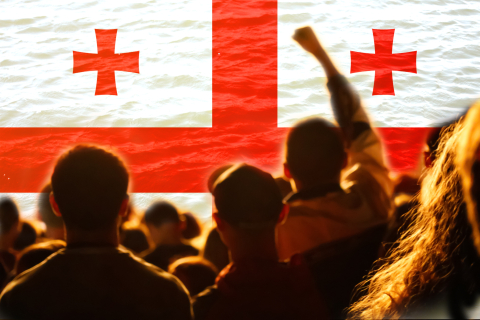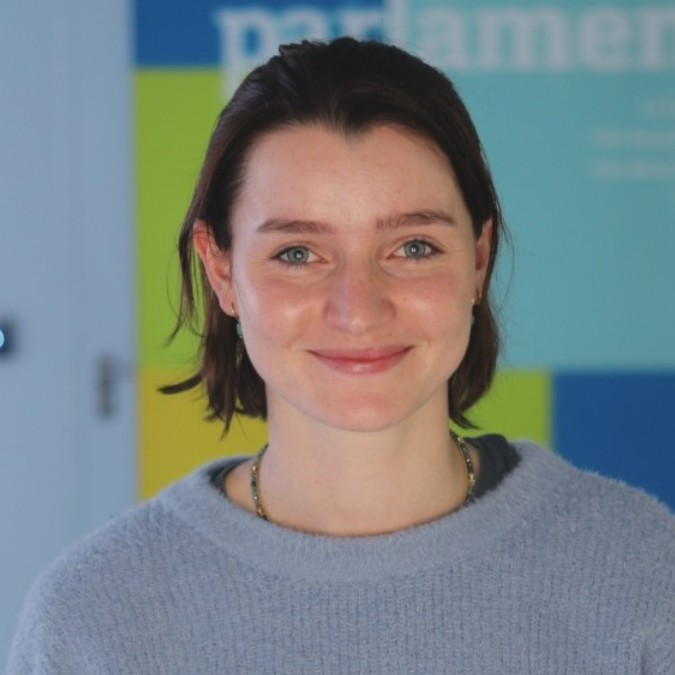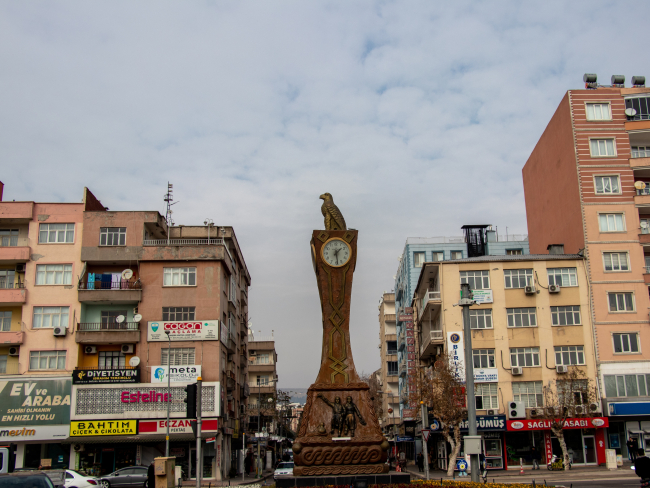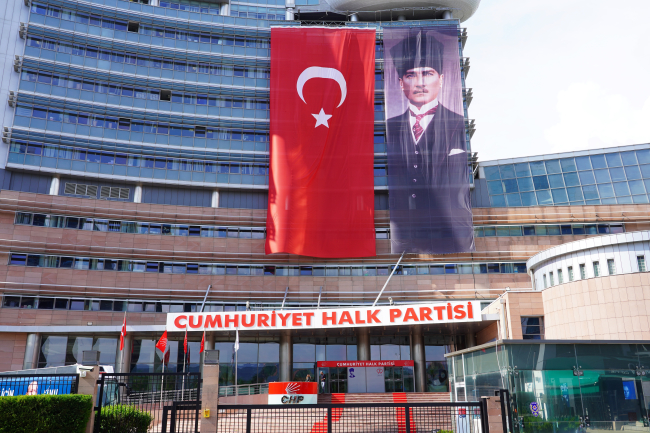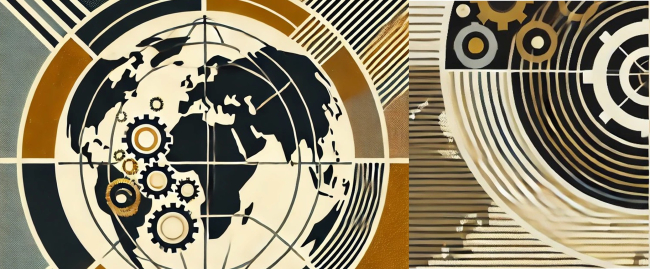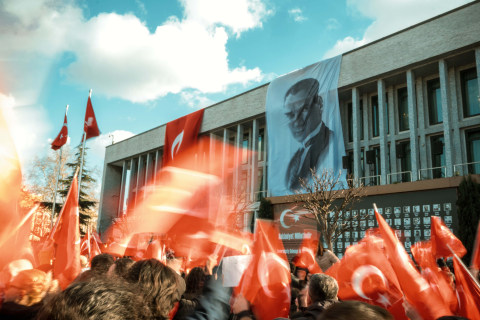
Practical information
Accessibility
Themes and regions
Related centers and programs
This is a private event.
Learn more about our corporate support packages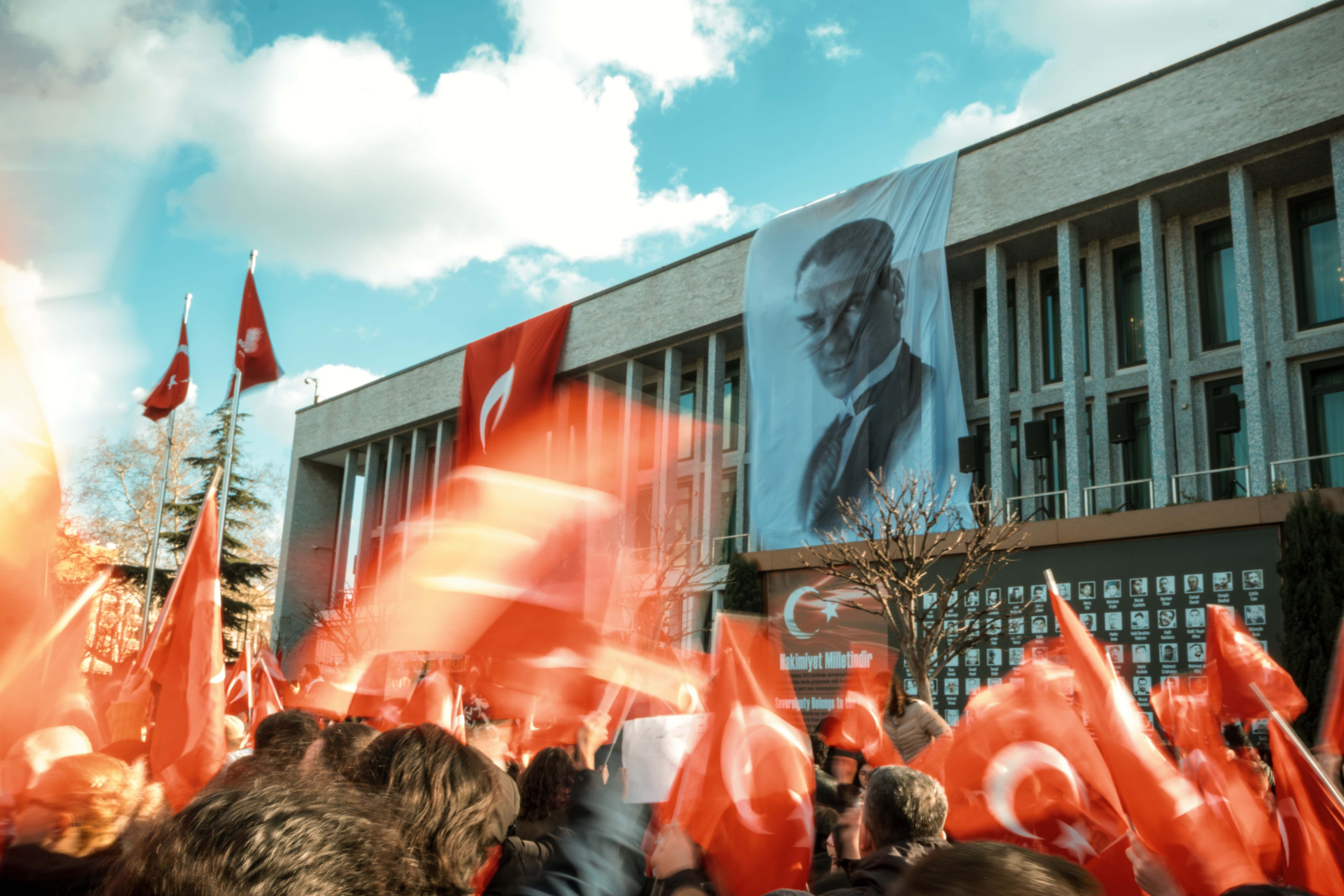
Turkey has entered a new phase of turbulence. The arrest of Istanbul’s mayor, Ekrem İmamoğlu, on March 19, 2025, triggered a broad protest movement, which the main opposition party, the CHP, is attempting to organize. In parallel, the government continues its peace process with the PKK — a development that could profoundly reshape the country’s political landscape. These events, which underscore the fragility of Turkey’s current political balance, are expected to have far-reaching consequences for domestic governance, economic stability, social cohesion, and, by extension, the country’s foreign policy decisions.
The near silence of the international community in the face of this highly volatile situation reflects a general sense of unease, driven by the widespread belief that President Tayyip Erdoğan remains capable of navigating extraordinary political reversals. Nevertheless, signs of regime fatigue are increasingly evident, and political, economic, and geopolitical actors are now fully factoring in the notion of a “Turkish risk.”
For the past three years, the Turkey 2050 program at Ifri has aimed to identify key variables and tipping points that could help anticipate future crises. To strengthen this analytical framework, we are organizing a joint seminar bringing together leading Turkish and French experts to exchange perspectives on Turkey’s evolving risk profile.
PROGRAMME
9:00–10:30 (CET)
Panel 1 | Power, opposition, civil society: what fault lines in Turkey?
Aurélien Denizeau, Associate Researcher, Turkey/Middle East Program, Ifri, France
Seren Selvin Korkmaz, Political Analyst and Executive Director, IstanPol Institute, Turkey
Moderator: Dorothée Schmid, Head of the Turkey/Middle East Program, Ifri, France
11:00–12:30 (CET)
Panel 2 | What scenarios for Turkey’s economic risk?
Güven Sak, Economist, Director of TEPAV, Turkey
Jens Bastian, Economist, Stiftung Wissenschaft und Politik (SWP Berlin), Germany
Moderator: Sébastien Jean, Economist, Ifri, France
14:00–15:30 (CET)
Panel 3 | Between regional ambitions and global tensions: Turkey’s geopolitical risk
Dorothée Schmid, Head of the Turkey/Middle East Program, Ifri, France
Kadri Gürsel, Journalist and Columnist, Turkey
Moderator: Delphine Minoui, Journalist, Le Figaro, France
This is an invitation-only conference. The event will be held in English with no translation.
Contact
For any information regarding this event, please contact Lise LESIGNE ([email protected]). Access is restricted to individuals who have received a personal invitation by email.
Lise LESIGNE
Former Project Officer, Sub-Saharan Africa Center, Turkey/Middle East Program, Ifri
Find out more
Adıyaman, the “Ownerless City”: Story of a Political Emancipation
Over the past two years, the city of Adıyaman has made headlines for two major reasons: first, its devastation by the earthquake of February 6, 2023, which struck between Turkey and Syria, and second, its significant political shift following the municipal elections of March 31, 2024.
Is the Republican People’s Party (CHP) Rising from the Ashes?
The victory of the CHP [Cumhuriyet Halk Partisi, Republican People’s Party] in the Turkish municipal elections of March 2024 firmly established it as the leading party of opposition to the Islamic-conservative AKP [Adalet ve Kalkınma Partisi, Justice and Development Party], which has been in power since 2002.
Manufacturing Risk: Geopolitical Doxa and the Corporate World
The evolving power dynamics between the United States, China, and Russia are creating new geopolitical realities that businesses can no longer evade. Geopolitical risk has become unavoidable, yet many companies remain unprepared to navigate its complexities. Corporate leaders can no longer afford to overlook its implications.
Related Subjects
Other events
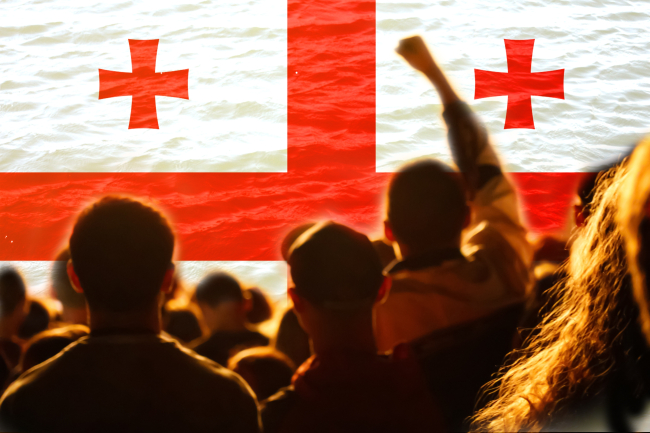
Georgia's Authoritarian Turn and Its Foreign Policy Implications
The Georgian state is currently undergoing a critical phase of democratic decline, marked by the domination of the Georgian Dream party and an authoritarian drift that is disrupting its political institutions.
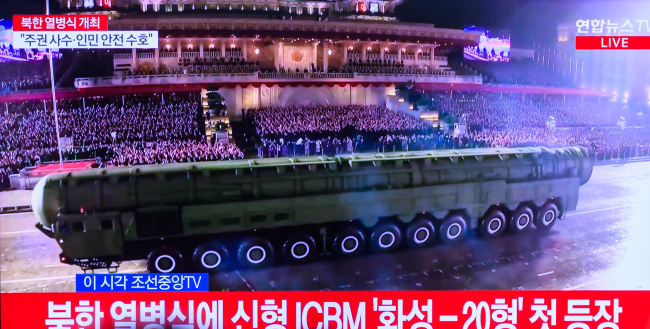
The New Nuclear Instabilities on the Korean Peninsula
From the growing size and diversification of the North Korean nuclear arsenal, and an open rhetoric in favor of nuclear proliferation in the South because of the loss of credibility of U.S. extended deterrence, the Peninsula is facing raising nuclear tensions.





